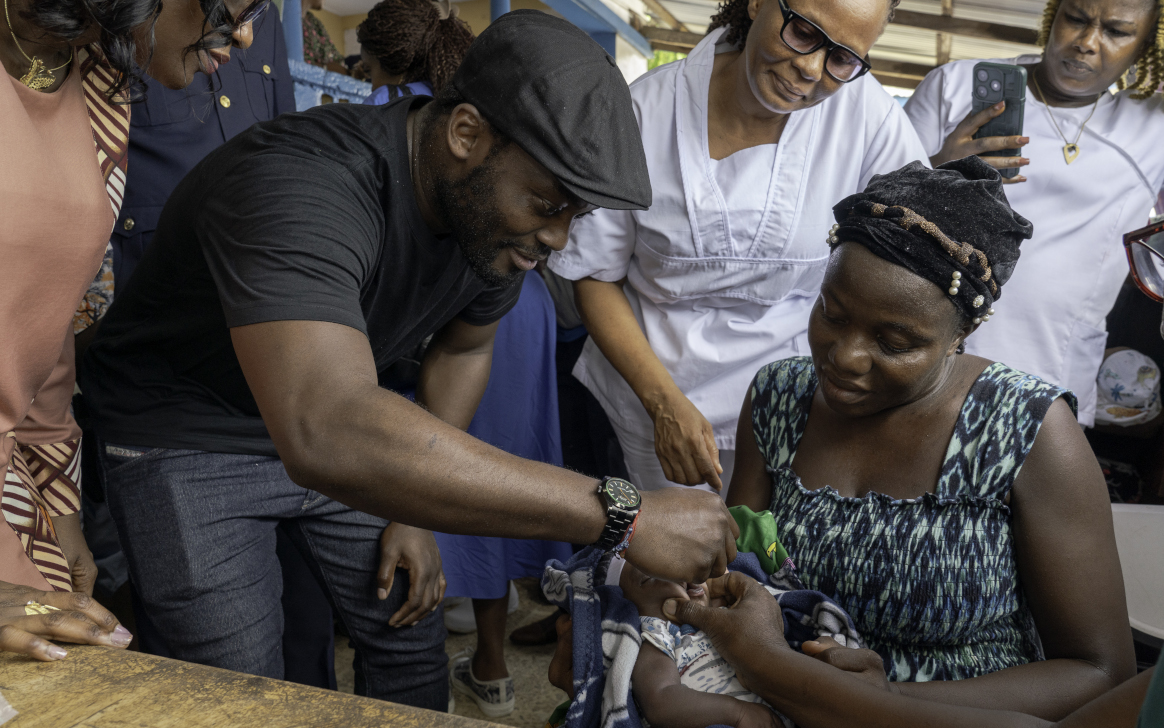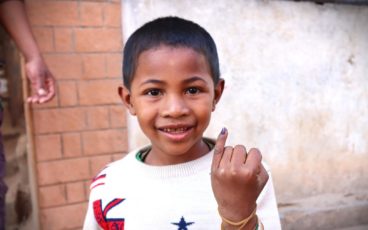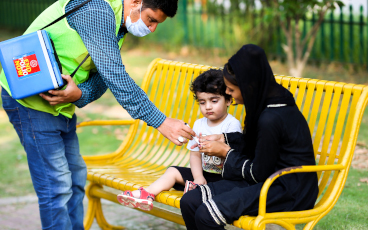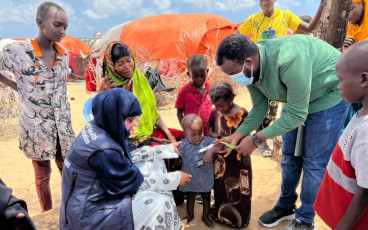Appeal for Nigeria
GPEI appeals for support to respond to a polio outbreak in north-eastern Nigeria as part of the broader humanitarian response effort
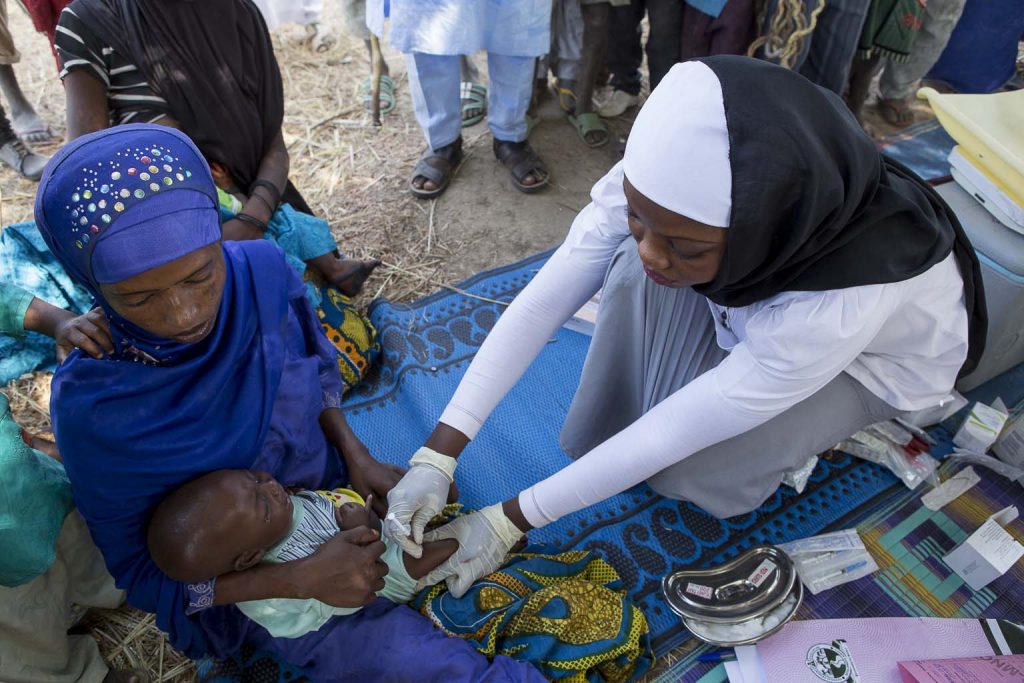
Nigeria & Lake Chad Polio Outbreak Appeal
Nigeria has been experiencing insurgency in the north-eastern part of the country since 2009 which led the Nigerian President to declare the state of emergency in the 3 worst affected states of Borno, Yobe and Adamawa states in May 2014.
The Global Polio Eradication Initiative (GPEI) aims to deliver polio vaccine alongside broader life-saving health interventions to some of the most marginalized populations globally in order to fulfil the goals of the Endgame plan. As part of the humanitarian response to the current crisis in Nigeria, a holistic approach to tackling polio underpins the current outbreak response efforts.
A deteriorating humanitarian situation
Against a backdrop of long-term crisis, the humanitarian situation in northern Nigeria has worsened substantially in recent weeks. Over seven million people are in urgent need of humanitarian assistance across the country, with limited access to basic health and other essential services, with the main areas impacted by the crisis situated in the north-east. Access to health services has been drastically compromised, with half of the population not having access to any basic health services. As a result on-going public health risks are very high, with low baseline vaccination coverage rates, populations housed in overcrowded and unsanitary camps and severe food insecurity. The crisis also has broader regional implications, with approximately 155 000 refugees in Chad, Cameroon and Niger.
Challenges to polio eradication
This difficult situation was made more complicated by the detection in August in Borno of two new cases of polio – the first cases detected in Africa since 2014. As many as 600,000 children across north eastern Nigeria remain inaccessible to polio vaccinators, presenting a very real obstacle to polio eradication efforts. Concrete strategies are in place to tackle such obstacles, including through close collaboration with key community stakeholders. Similar approaches have been used by the GPEI in other parts of the world beset by complex humanitarian emergencies or insecurity. Most recently in the Middle East, the polio outbreak response was conducted within the broader humanitarian response effort, to ensure that as communities are reached, they are not just reached with polio vaccine but with a host of other lifesaving health interventions.
An effective outbreak response
Following the recent cases of polio in Nigeria, a major vaccination campaign in Nigeria and the surrounding region has been launched in collaboration with the Ministry of Health and UNICEF, with subsequent rounds to follow. Vaccination efforts form part of the broader response to the current humanitarian crisis in Borno and the surrounding states, and across the Lake Chad basin countries. The focus is on coordinating the delivery of basic health services including vaccinations, enhancing surveillance for epidemic-prone diseases, providing life-saving interventions to manage common ailments among children, adult and the elderly, improving maternal and child health services at the community and facility level including mentoring of health workers, conducting ongoing evaluations of the evolving situation, and improving readiness response for any new disease outbreaks. The GPEI is committed to integrating within a broader humanitarian framework in order to secure a polio-free world.




